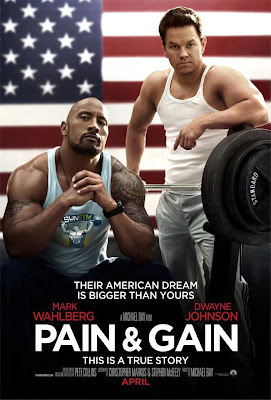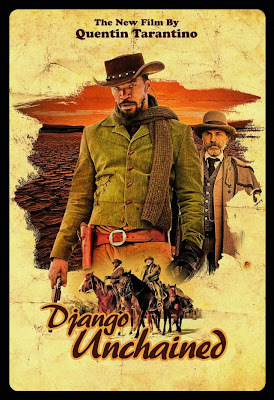‘The Counselor,’ The Thief, His Wife & Her Lover
The
Counselor: 2 ½ out of 5
Laura: Have you been bad?
For film lovers, the
idea of putting director Ridley Scott and author Cormac McCarthy together for a
film seemed like a grand idea. Between
Scott’s abilities to provide thrilling atmosphere and a compelling depiction of
process in his films and McCarthy’s skill for writing about the darkest sides
of humanity, while sometimes adding a slight touch of pitch black humor, a
project like The Counselor had all
the potential to be a strong ensemble thriller, matching up to the Coen Brother’s
take on McCarthy’s previous work, No
Country For Old Men. Unfortunately,
despite all the atmospheric work done from a filmmaking standpoint, the shallow
characterization and lingering story did not quite make this dark tale excel to
its fullest.
Michael Fassbender
stars as the Counselor. This is a man
without a name and little other shading done to provide a backstory for
him. We can tell from the start that the
Counselor has confidence in himself, tries to play things smart, is in love
with his girlfriend Laura (Penelope Cruz), but is completely in over his head in
regards to his latest venture. The
Counselor has recently joined forces with men involved in a shadier side of
business, in an effort to make money in drug trafficking.
The
Counselor is something of a Shakespearian tragedy, wrapped
around the workings of a modern western, with a heavy dose of nihilistic
attitudes and neo-noir sensibilities.
Just writing that sentence takes a lot out of me, but this film will no
doubt take a lot out of its audience.
The first half is happy with simply lounging around the elaborate homes
and locations of the various players involved, complete with everyone providing
their own opinions on life and the lives they live. Once the downfall of the hero, and everyone
around him, is set in motion, the film is driven to propel the audience down
this spiral with them. The problem is
how the film creates this incredibly dark universe, but populates it with
mostly uninteresting characters.
I am about as big a fan
of Michael Fassbender as anyone else who has been following his work can be and
it is not that he is not delivering, but this story allows for very little of
what he is bringing to it to make me have much empathy towards him. If anything, the film gives its audience
plenty of reasons to not enjoy this person, as he willingly involves himself in
a grand scheme, despite almost every other character nudging him to pursue a
more legitimate option. Of course, as
this is the work of Cormac McCarthy, things proceed down the darkest possible
roads anyway and desperation is only one of the ways that most will suffer.
Among the other
characters in this film, the most enjoyable work comes from Javier Bardem, who
of course created one of the ultimate film villains of all time in the form of
another Cormac McCarthy character, Anton Chigurh in ‘No Country’. While this film
finds him relishing the chance to dive back into another dark,
McCarthy-originated world, Bardem’s Reiner is a seedy, but charismatic
entrepreneur this time around; enjoying life too much to take a step back and
realize how dangerous his dealings actually are. Aside from some of the spectacular nastiness
that occurs on screen, Bardem’s scenes feature the most energy, which is not solely
related to just his choice of hair style this time around.
In a film featuring a
huge number of supporting players, the most unsuccessful performance comes from
one of the most important ones. Cameron
Diaz’s work as Malkina, the scheming, sociopathic lover for Reiner, is a big
miss. While Diaz has successfully
dabbled in over-the-top villainy before (see: Oliver Stone’s Any Given Sunday), she feels very much
out of place here. Diaz is an actress I
tend to stand up for, as I think she can be capable in a variety of roles, but
her delivery of dialogue felt consistently off throughout this film, with the
sole exception of a scene set early on between her and Penelope Cruz. This early scene has the kind of seductive
spark required of her character, others have her reading off dialogue as if
giving a speech to a high school public speaking class. While the leading male characters in this
film are basically blinded by arrogance, Malkina is supposed to be a woman who
will break down anything in order to get more.
The intent behind scenes featuring her character are clear enough, but
whatever was going on with Diaz’ direction in this film felt more off-putting
than effective, which ultimately takes down the film.
One would have to
ultimately lay much of the blame in Ridley Scott’s direction. Here is a man who is a masterful craftsman at
this point, but The Counselor feels
much more like one of his 80s films that are all style and atmosphere, while
providing little in the way of characterization or compelling narrative to keep
one entranced. There are particular
sequences in this film that I loved.
Most of them deal with process. A
scene that shows the setup and payoff of an elaborate “mouse trap” is the kind
of visual storytelling that very much plays on a visceral, but structurally
sound sequence (with lots of movie logic to allow for). Another sequence depicts dangers of the drug
trade and how to solve the problem of a truck riddle with bullet holes. These are the kinds of small scenes that
Scott can nail, but having the backing of a stronger narrative or characters
are reasons why they play even better in his superior features.
The
Counselor lacks a greater whole for these smaller scenes to
latch onto. The film provides little for
the fine cinematography by Dariusz Wolski to have an overall effect on, despite
the use of multiple locations around the world, with a nice handle on the
vastness of the El Paso/Juarez border. It
does not find a way to make this approach to a McCarthy script more
enjoyable. No Country For Old Men may be a film that shares the same sort of
darkness, but the Coen Brothers have an amazing ability to bring out a level of
quirk (a word dreaded by them and many others) in their story and have the film
register on a more palpable level. The Counselor has a lot going on, but
the journey to get there is played fairly straight and not all that engaging.
Reiner: If you pursue this road that you’ve embarked
upon, you’ll eventually come to moral decisions that will take you completely
by surprise. Ones you didn’t see coming
at all.
Aaron
is a writer/reviewer for WhySoBlu.com.
Follow him on Twitter @AaronsPS3.
He also co-hosts a podcast, Out Now with Aaron and Abe, available via iTunes or at HHWLOD.com.
He also co-hosts a podcast, Out Now with Aaron and Abe, available via iTunes or at HHWLOD.com.













Comments
Post a Comment